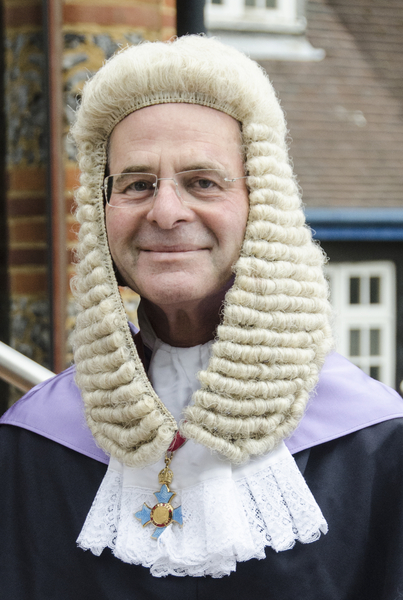New Chancellor outlines his vision
A NEW Chancellor has been appointed to be the ultimate legal authority across our diocese.

Judge Philip Waller, our new Diocesan Chancellor
His Honour Judge Philip Waller CBE is our new Diocesan Chancellor. He will be formally installed at Evensong in our cathedral on January 19.
His role in our diocese will be to determine whether alterations can be made to church buildings, with the advice of the Diocesan Advisory Committee for the Care of Churches. And he has already indicated that he doesn’t want our buildings to become museums – but places of welcome, vitality and spiritual growth.
Philip is married to Linda, with two adult daughters. They have lived in St Albans for almost 30 years and are regulars at St Albans Cathedral. He is a member of the Cathedral Chapter and Cathedral Council, helping to oversee major projects to enhance the cathedral.
His legal background was as a barrister, and for the past 20 years he has been a judge specialising in family law. Until recently he was based in London, working on child care cases, financial and property matters and probate and inheritance disputes. Since last April, he has been based at the family court in Watford, where the main emphasis is on local authority care proceedings and adoption.
He has a strong interest in church history and architecture, historic houses and gardens and choral singing. He’s involved with children and young people’s activities and teaches in the cathedral’s Sunday Club.
“There may not immediately seem to be much common ground between the work of the family courts and the ministry of the Church,” he said. “However, both are closely linked to the everyday lives and experiences of all of us and often involve working with people who are vulnerable or emotionally troubled.
“Both have had to adapt and develop as social, cultural and economic circumstances have changed. I see this dynamic process as crucial to maintaining the relevance of and public confidence in both the law and Church in our society.
“We have, in the churches of the diocese, a rich spiritual, cultural, architectural and historical heritage which it is our pleasure – and duty – to conserve and enhance, for our own and future generations.
“But at the same time our church buildings must not become museums – they are an integral part of our ministry and mission and should be places of welcome, of vitality, of renewal and of spiritual growth.
“We need to think prayerfully about the use of our church buildings and how they may be adapted or developed to meet changing needs, while maintaining continuity and faithfulness. My work with children and families, and my experience at St Albans Cathedral, helps me in any decision-making process to focus on the welfare of the people concerned.
“In the present context that, to me, means that we must look on our church buildings as a living resource, which can enrich and inspire our lives in the service of God, so that in each place we may say (or sing): ‘Surely the Lord is in this place; this is none other than the house of God.’ (Genesis 28:16-17) I hope that in my work as diocesan Chancellor I may contribute in a small way to achieving that goal.
“Lastly, I would like to pay tribute to my predecessor as Chancellor, Christopher Clark QC, for his care and oversight of our churches and churchyards during his period of office, and to the deputy Chancellor, HH Judge Keith Cutler CBE, to whom I am indebted for his support and for his contribution during the interregnum.
“I look forward to working with the clergy, churchwardens and congregations of the Diocese and to meeting many of you over the coming months.”